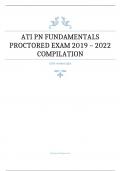Summary
Summary Drafting Commercial Leases - Advanced Commercial Property
- Module
- LPC - Legal Practice Course
- Institution
- LPC - Legal Practice Course
Condenses all the reading, lectures and SGS activities to about 30% the original volume. Clear, Concise and Organised.
[Show more]




